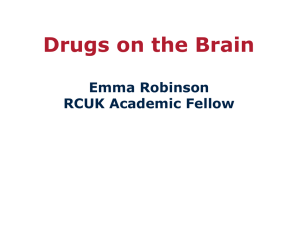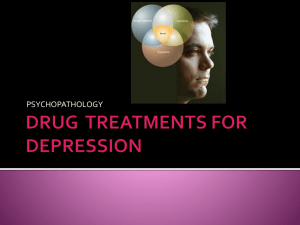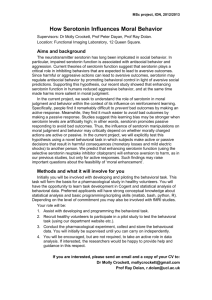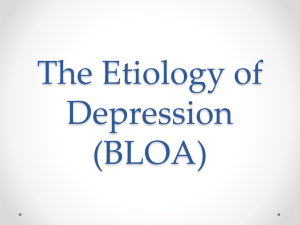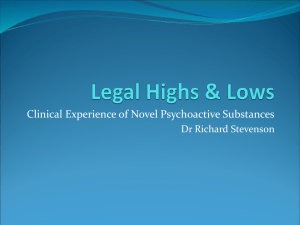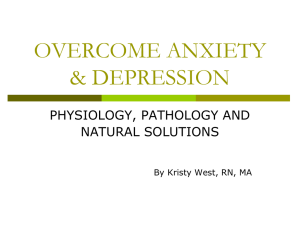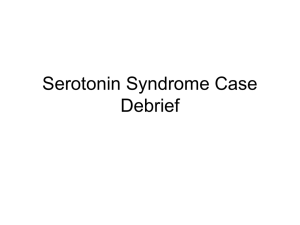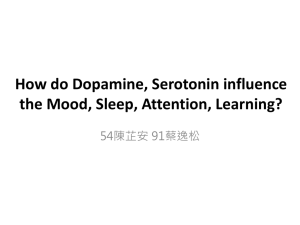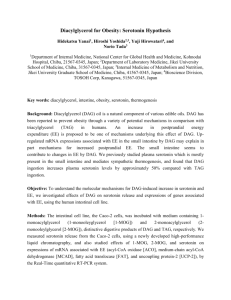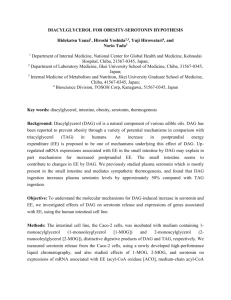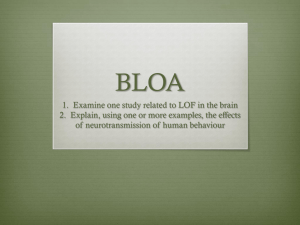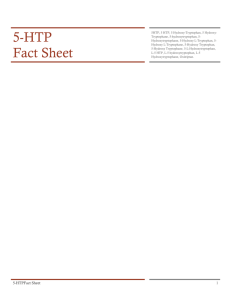biological-aetiologies-of-depression-2011
advertisement
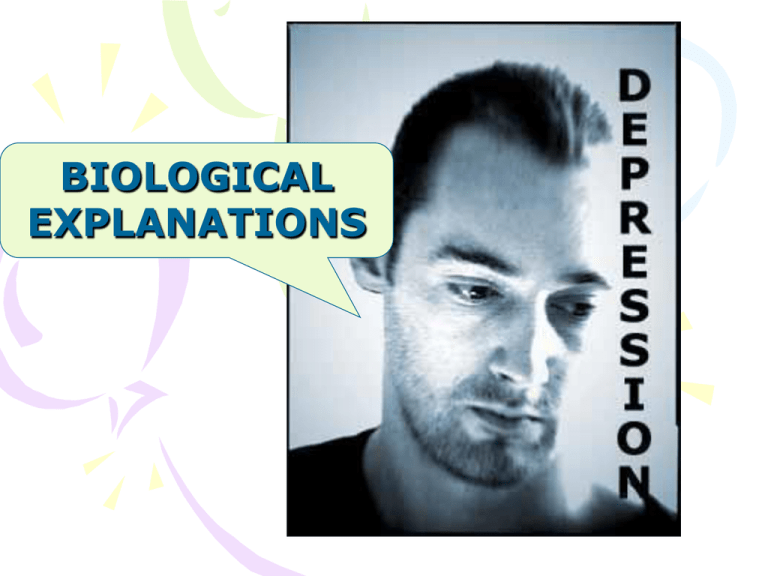
BIOLOGICAL EXPLANATIONS Bio chemical changes Genetic inheritance Metabolic & hormonal changes MAOI’S • In the 1950’s, using Monoamine oxidising inhibitors for TB, they discovered that patients were remarkably euphoric Yippee, I’m ill! Qu. Therefore, what neurotransmitters are likely to be involved with mood? • Monoamines are = ? • Serotonin – Noradrenaline – Dopamine • • catecholamine" hypothesis • Schildkraut (1965) believed that too high a level of noradrenaline led to mania and too little to depression. Qu. What happens if you change the level of one monoamine? • Prange, 1974 • A deficit in serotonin ‘permits’ (not causes) the symptoms of depression. • Changes in serotonin levels affect the nature and intensity of the symptoms. • If monoamine activity is increased = mania • If monoamine activity is decreased = depression Kety, 1975 – Permissive Amine Theory • Both Serotonin and noradrenaline levels change in mood disorders. • It is serotonin that controls the levels of noradrenaline. • High levels of serotonin keep levels of noradrenaline constant which prevents mood swings. • There is a serotonin deficit in depressives = is genetic. • Qu. Therefore, according to this theory, what happens if there are low serotonin levels? Kety, 1975 – Permissive Amine Theory Mania Noradrenaline Serotonin Depression Qu. What if Serotonin levels drop to a very low level? Supporting evidence for the permissive amine theory? • Teuting et al (1981) • Examined the urine of depressed patients • Found by-products that suggest lowered levels of both serotonin and noradrenalin. Supporting evidence for the permissive amine theory? • McNeal & Cimbolic (1986) • Examined the cerebo spinal fluid of depressed suicidal patients • Found reduced amount of by-product. • Suggests low level of serotonin in the brain Qu. If this theory is true, what would happen if you take drugs to increase serotonin levels? • Drugs treatments that concentrate on raising serotonin levels (SSRI’s) do improve the depressed mood in the majority of patients • Newer anti-depressants (like Effexor) are actually targeted at both serotonin and noradrenaline, and are even more effective in treating depression. Qu. Can this theory explain gender differences in prevalence rates? • Diksic et al (1997) • Found that men make 52% more serotonin than women. • Qu. Conclusion? • This could make men far less prone to depression than women. Qu. Any criticisms of theory? • 1. Not all depressives show reduced levels of these neurochemicals. • Qu. Would these benefit from drug treatments? • No, not all patients benefit from drugs treatments. • Qu. What does this imply about the causes? • Are other biological factors involved? • Cortisol, oestrogen, diet? Qu. Any criticisms of theory? • Deakin & Graeff (1991) • 2. Even following recovery from depression the deficits in serotonin and noradrenalin levels still remain. • Qu. What does this imply? • Another neurochemical involved perhaps? Qu. Any criticisms of theory? • 3. Anti-depressives such as MAOIs (monoamine oxidase inhibitors) increase the levels of noradrenalin and serotonin within minutes. • However, they have no effect on mood for many weeks (normally two weeks). • This suggests that they are not working simply by increasing the levels of chemical in the brain. • Qu. What does this imply about the cause? Conclusion: Depression is a complex issue We don’t really understand the full interaction between neurotransmitters. Other biological factors are clearly involved. Genetics & Depression Qu. How do you ‘prove’ a genetic argument for any behaviour? Twin studies: McGuffin et al, 1996 MZ 46% Bertelsen 1977 Qu. Problems? 59% DZ 20% 30% Genetics & Depression Family concordance rates Gen Pop Family Gershon 1990 Wender 1986 15% 15% 40-50% 70% if adopted Qu. Problems? Essay Preparation • Biological Aetiologies • Using PPt and handout group A01 and AO2 material for Neurotransmitter Explanations • Do the same for genetic explanations
